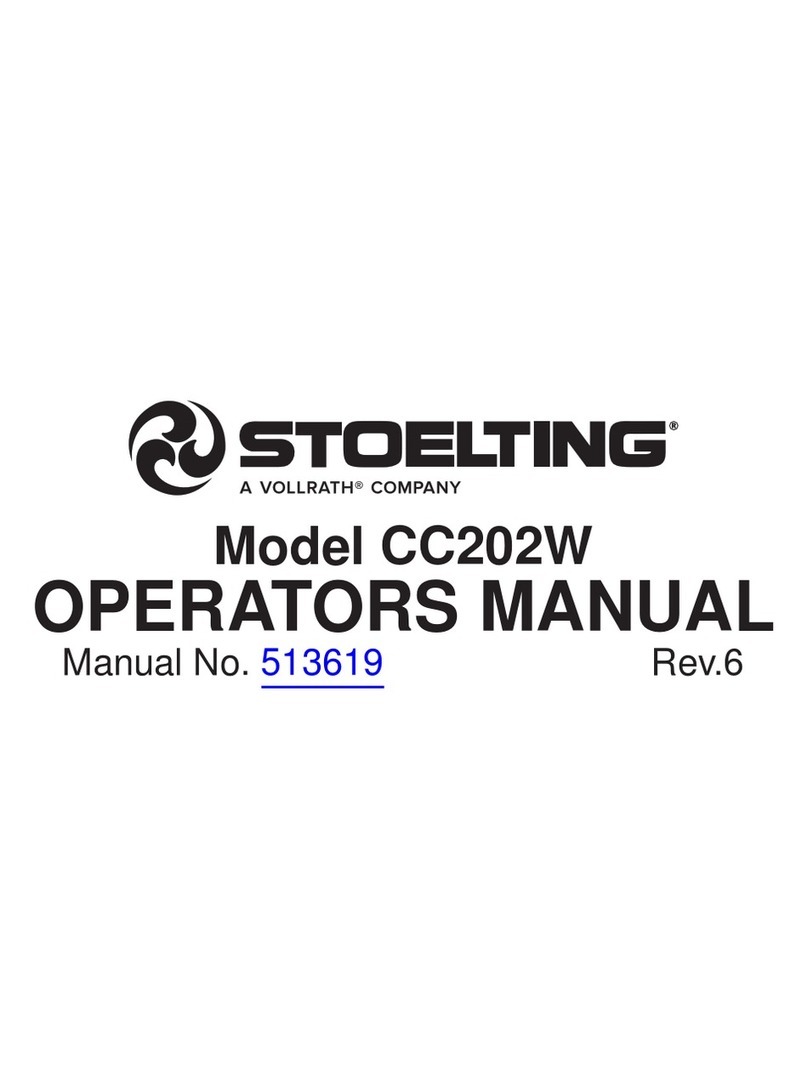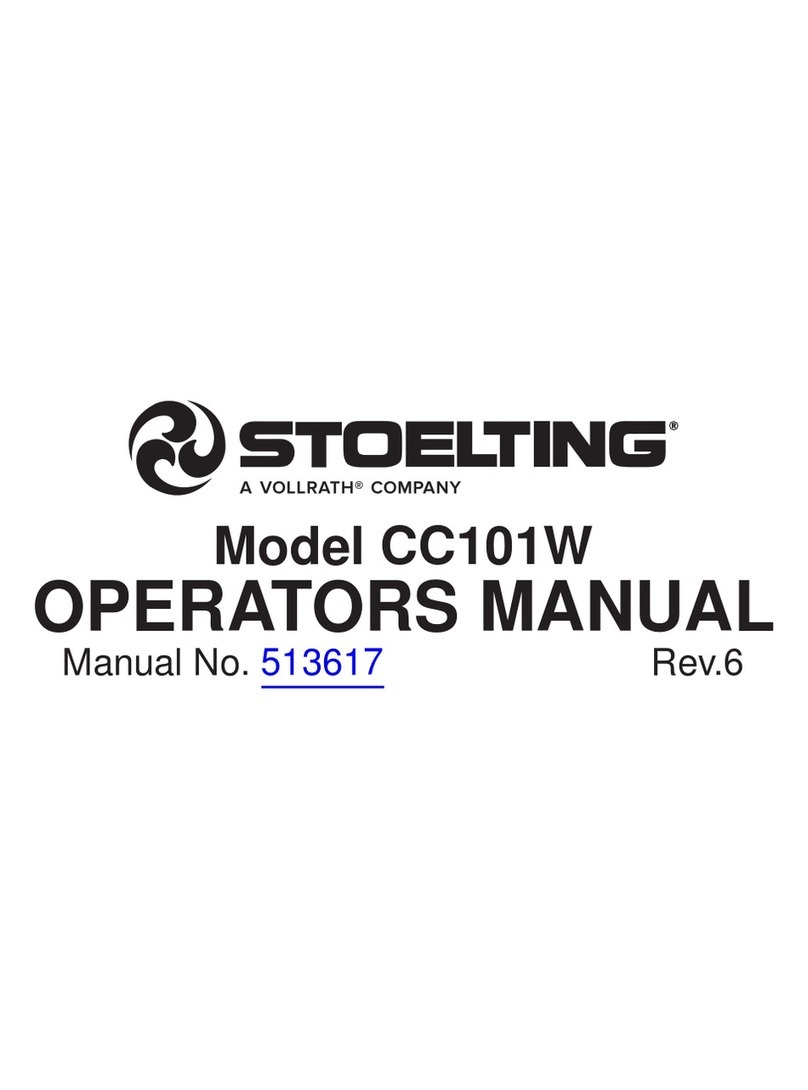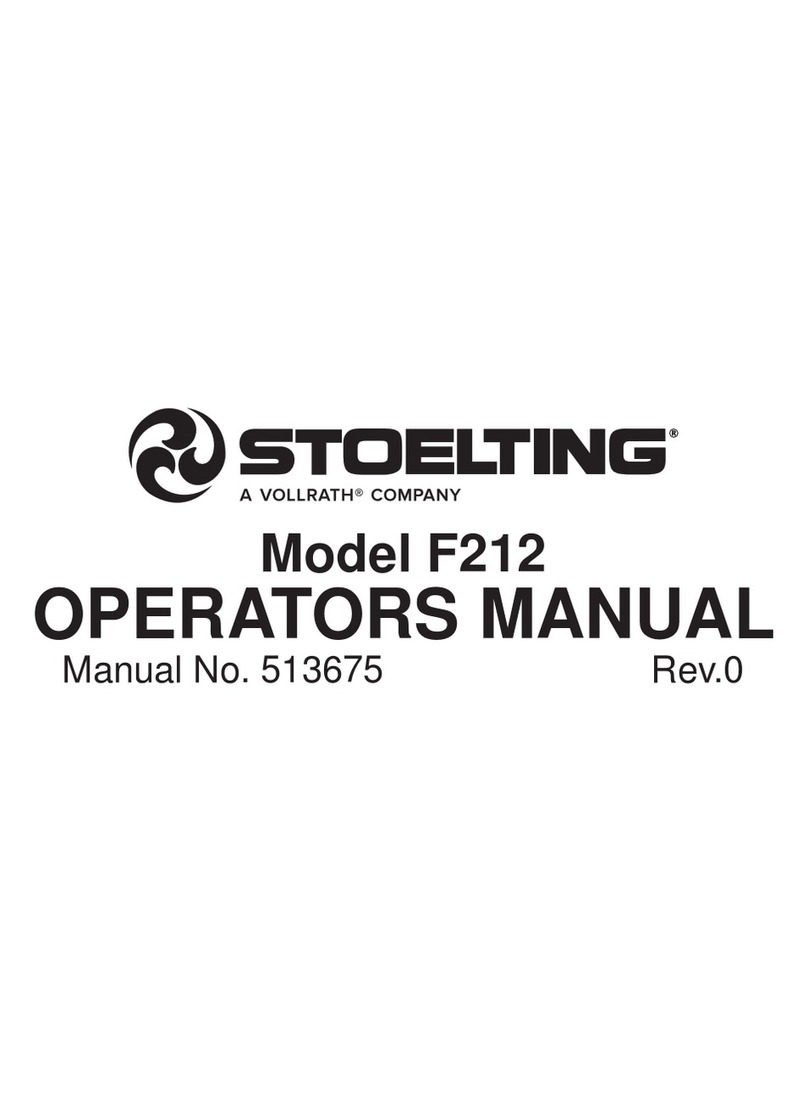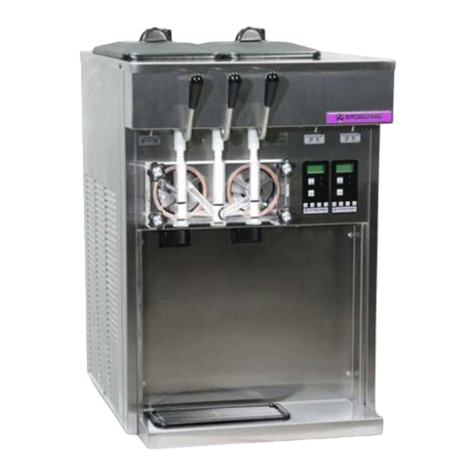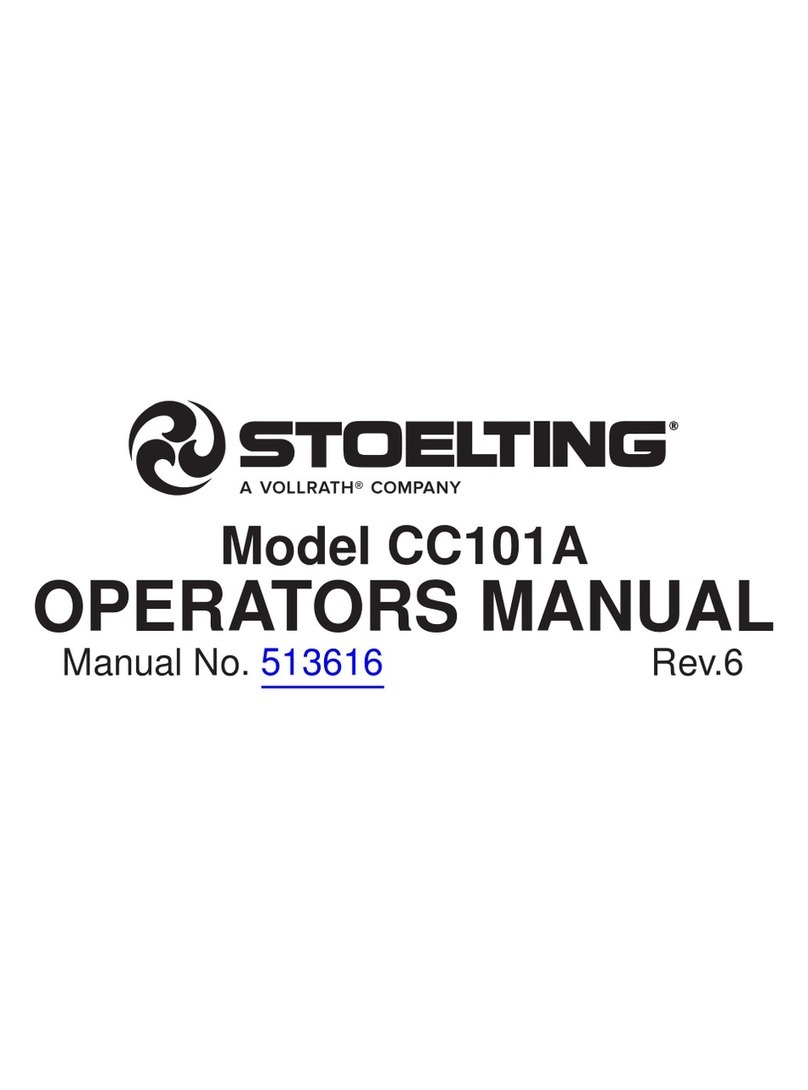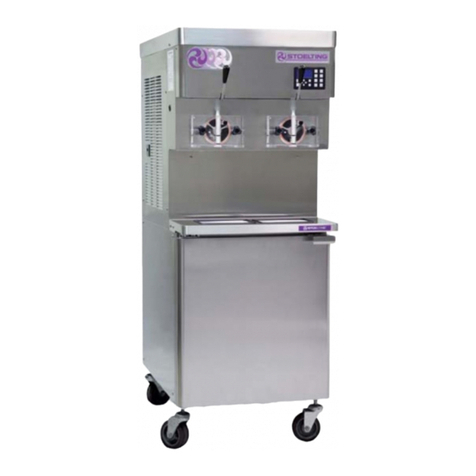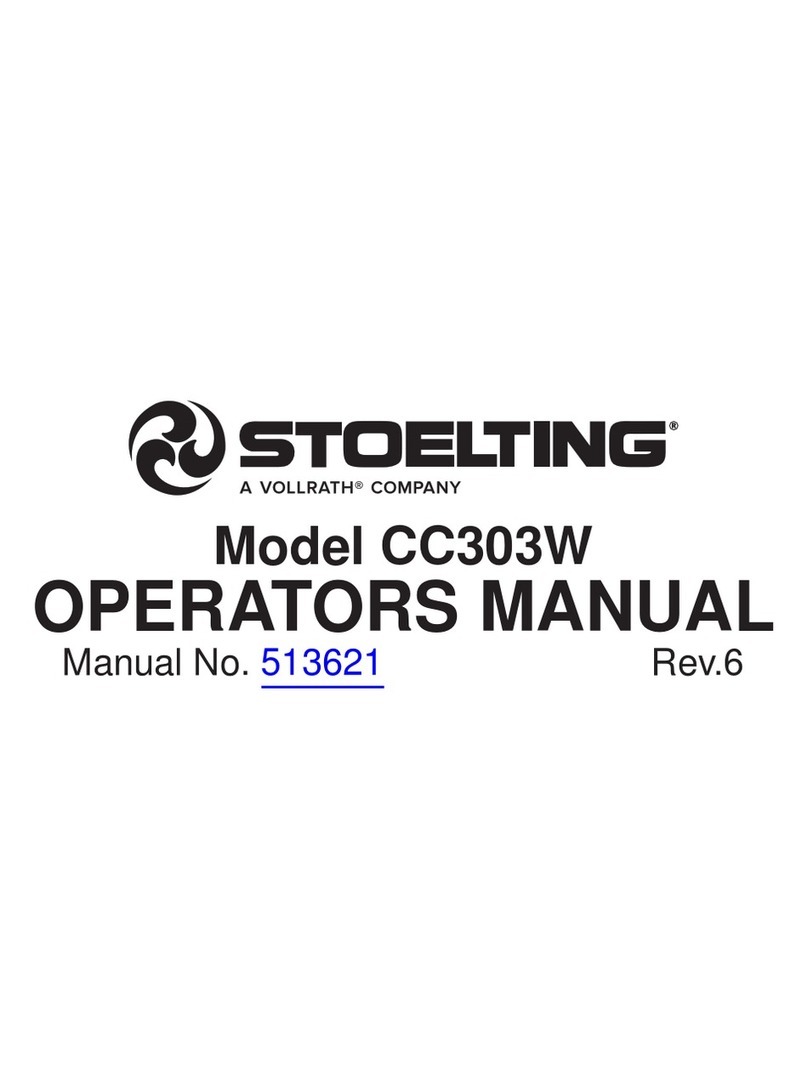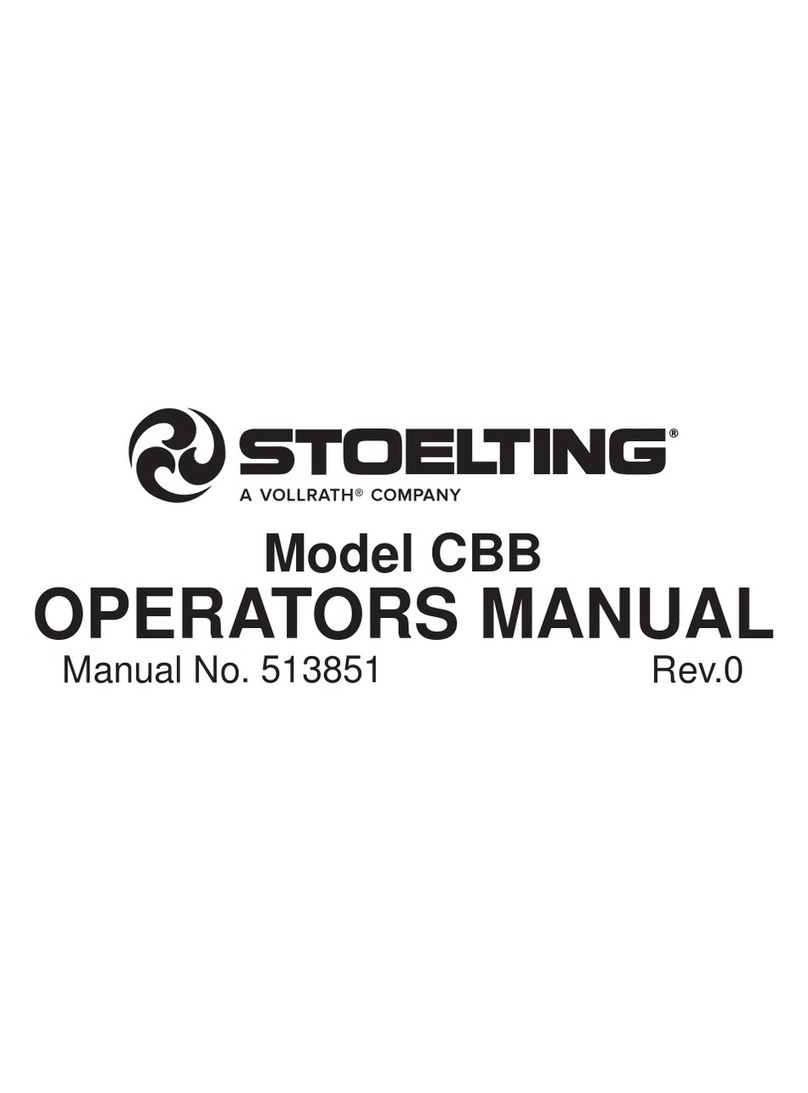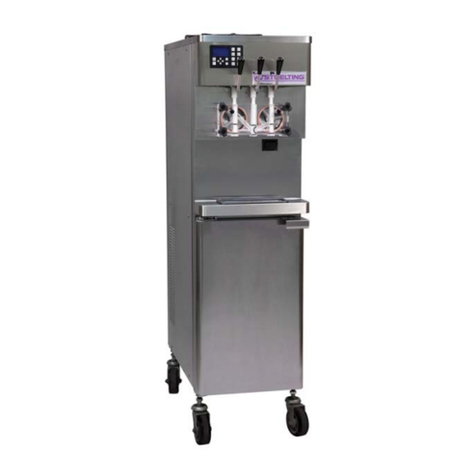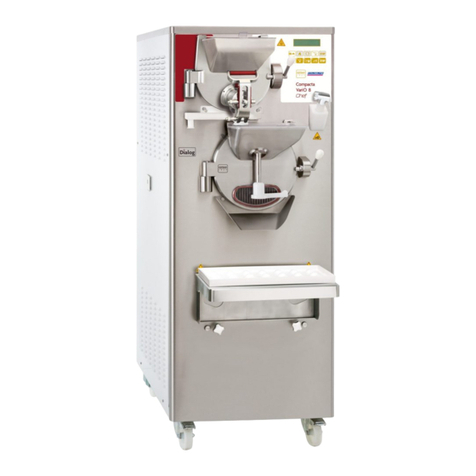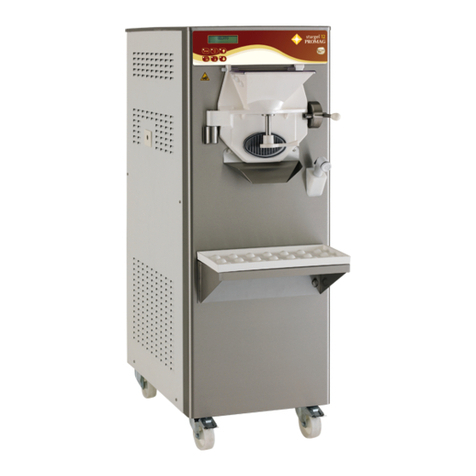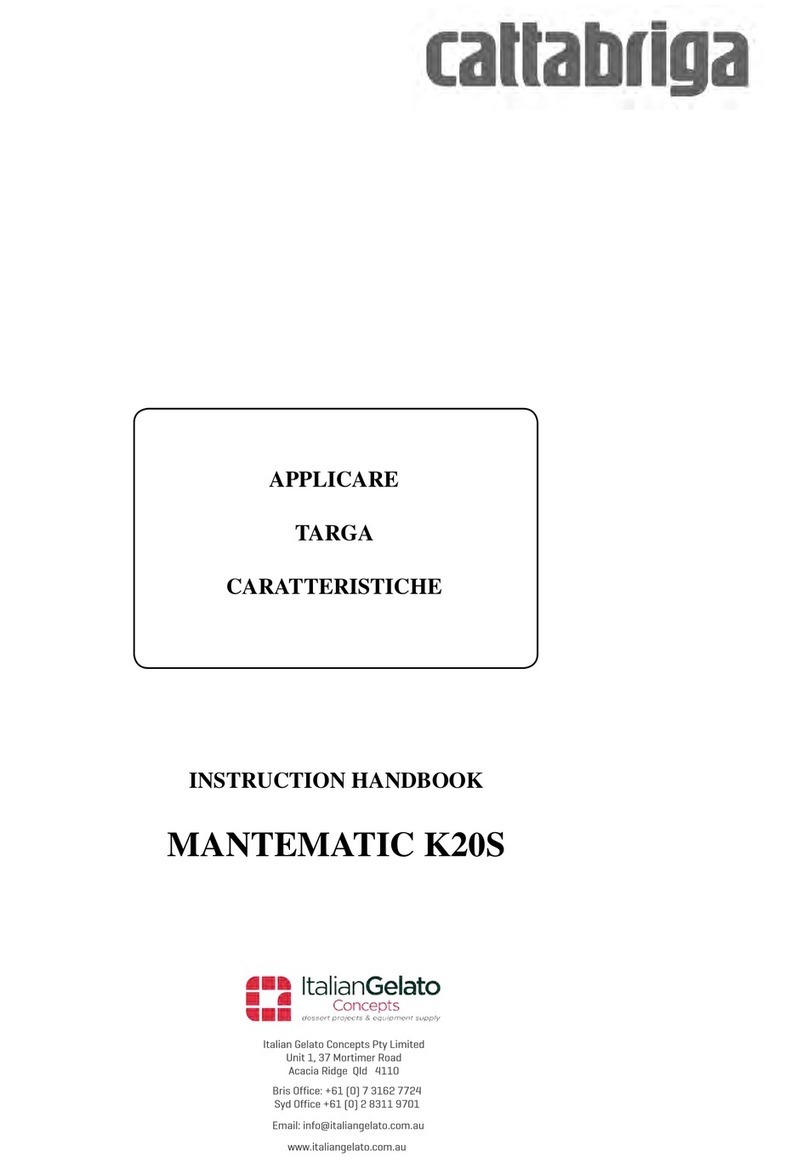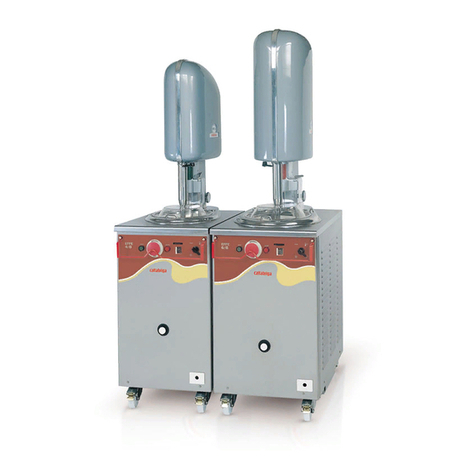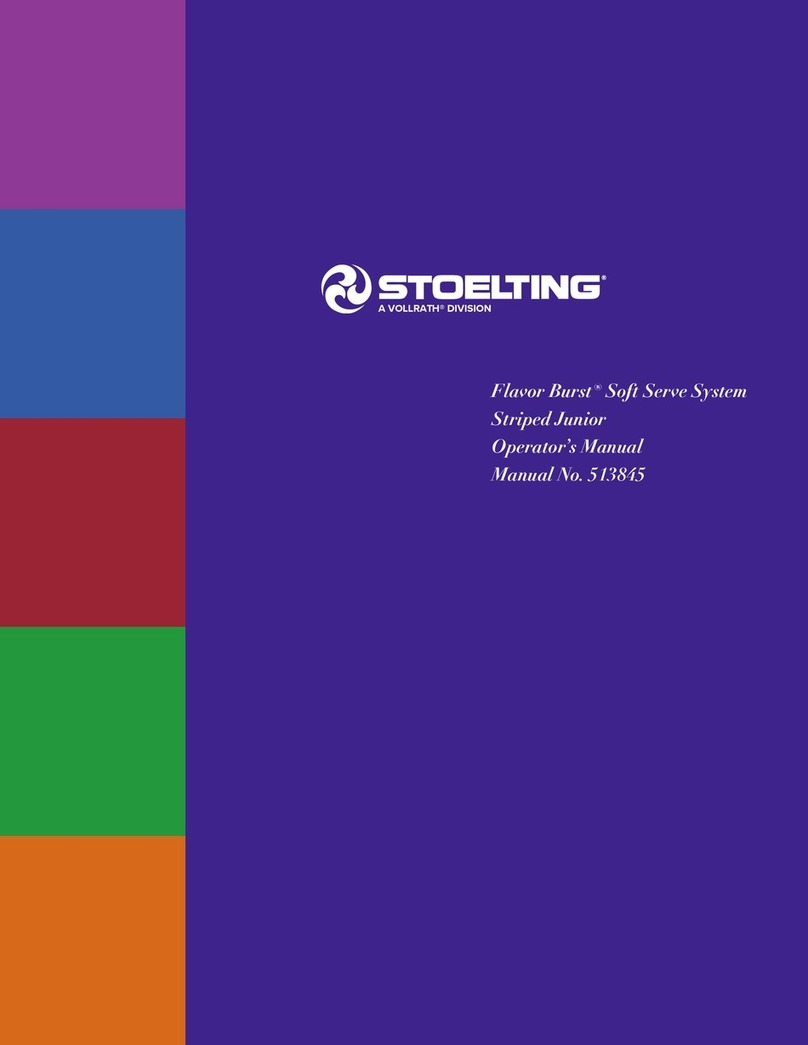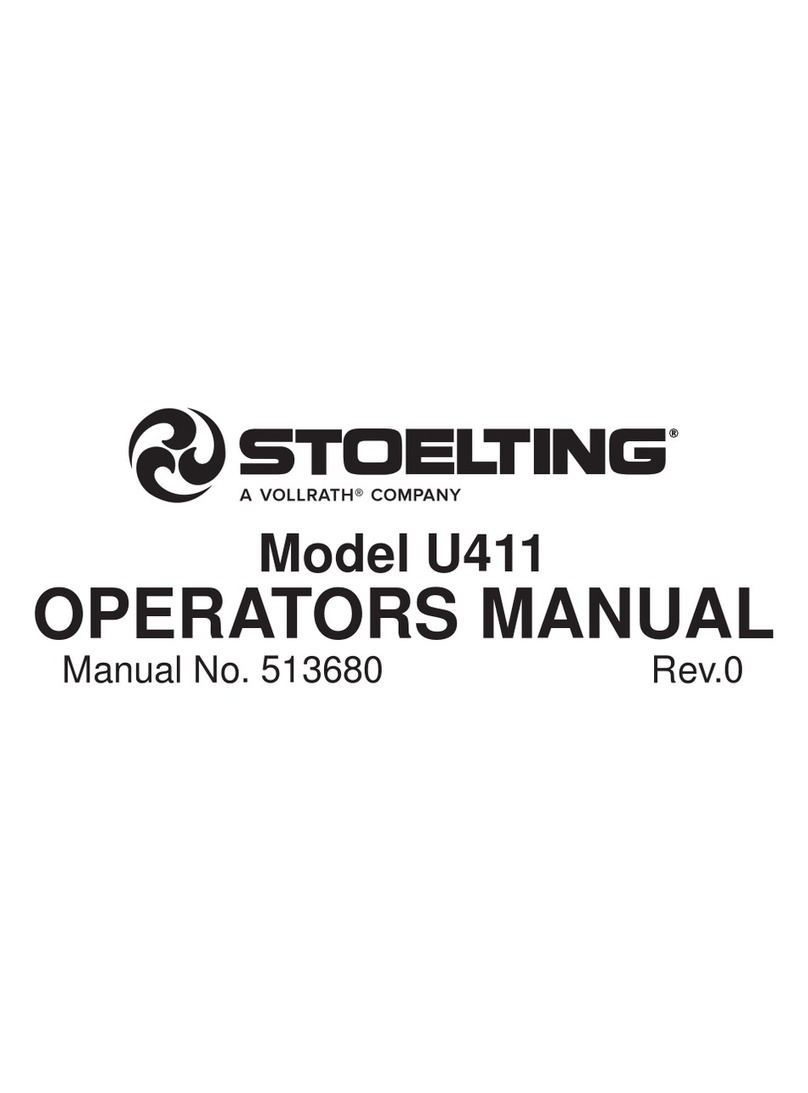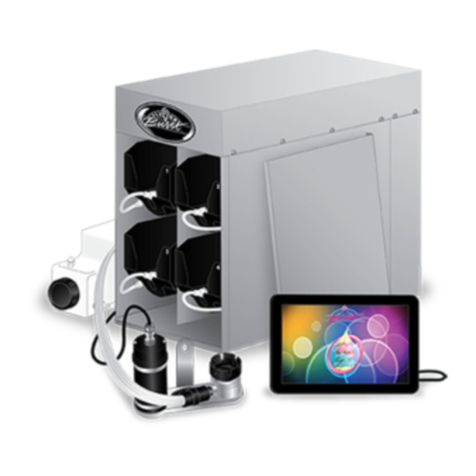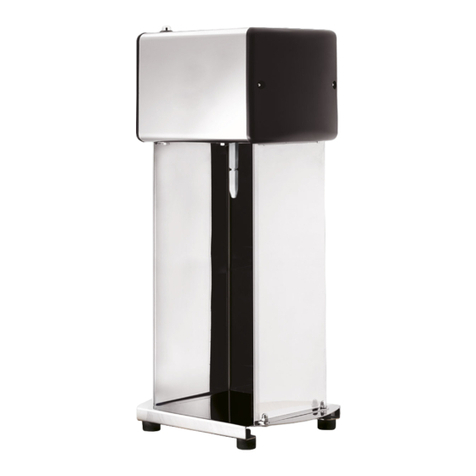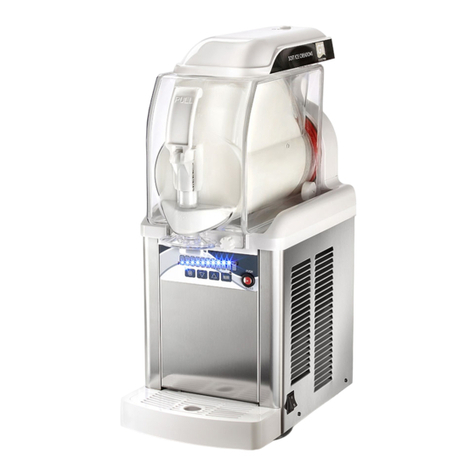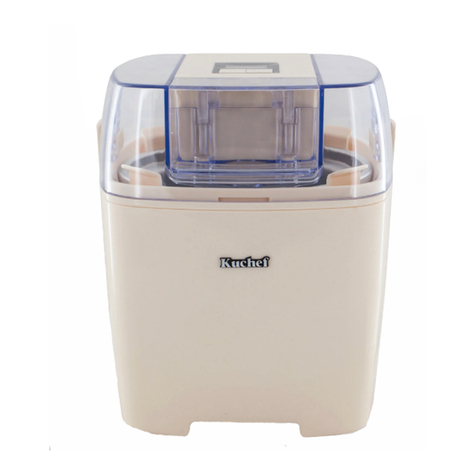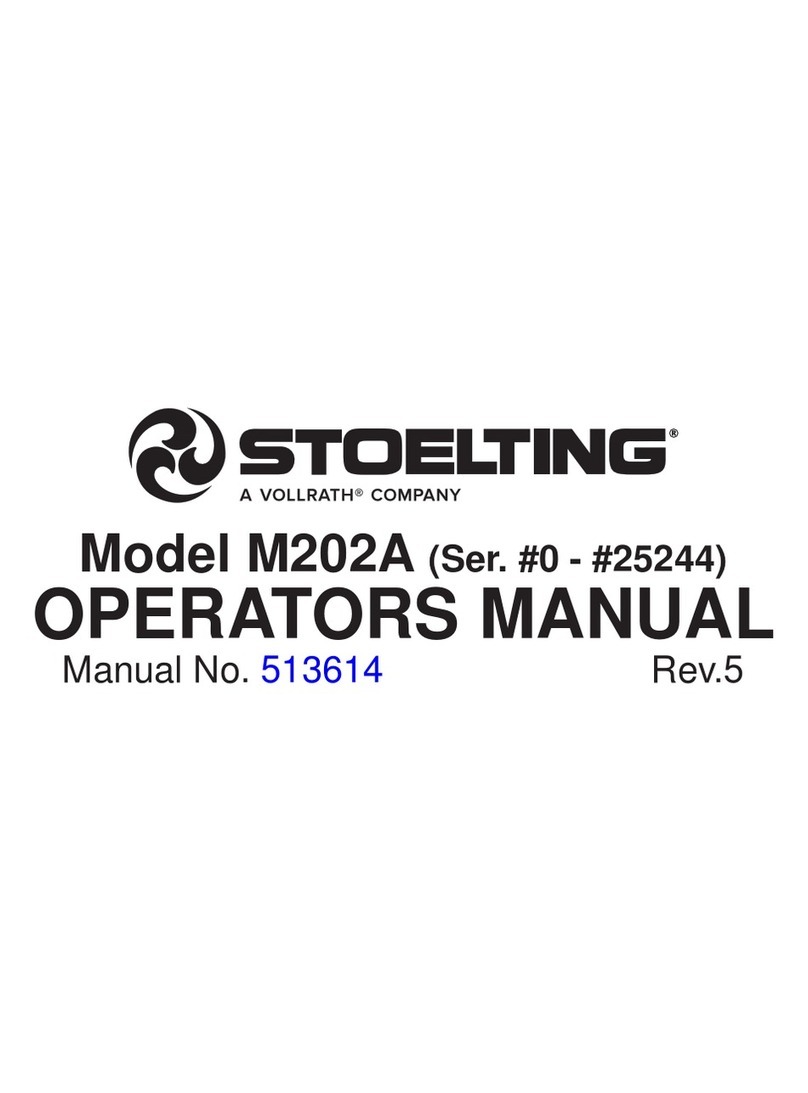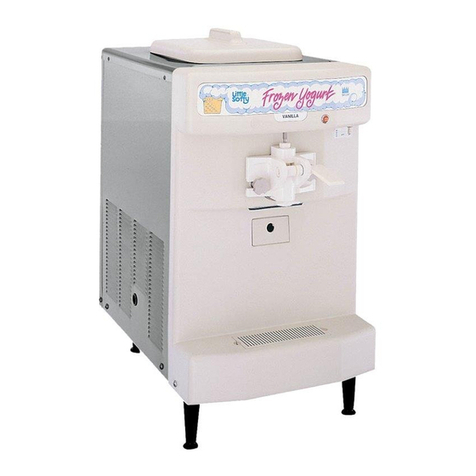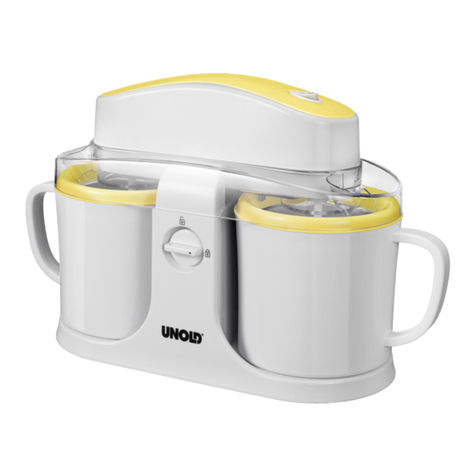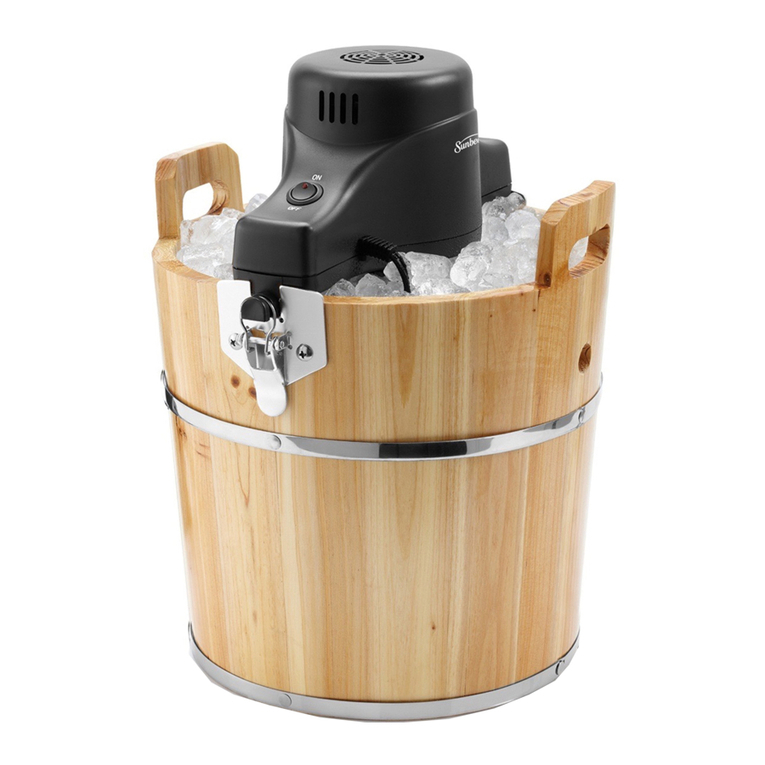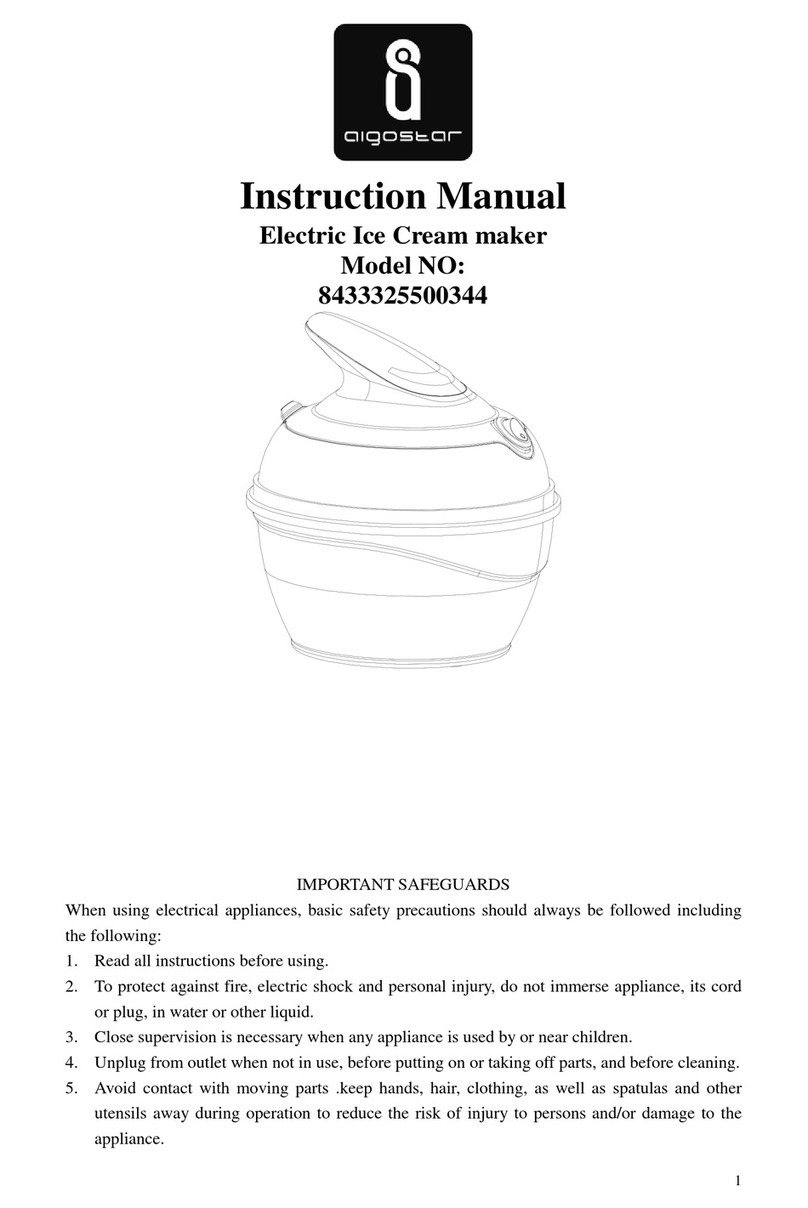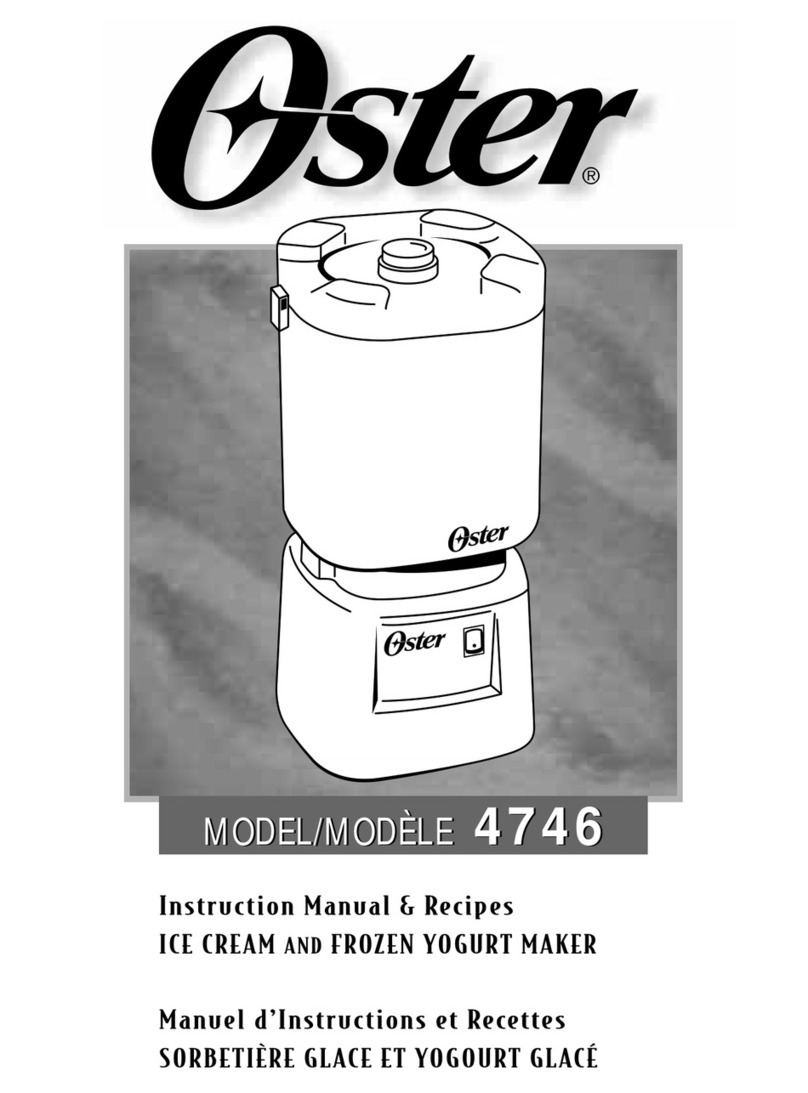
Owner’s Manual #513678 3 O431 I2 Model Machines
2.1 SAFETY PRECAUTIONS
Do not attempt to operate the machine until the safety
precautionsandoperatinginstructionsinthismanualare
read completely and are thoroughly understood.
Take notice of all warning labels on the machine. The la-
bels have been put there to help maintain a safe working
environment.Thelabelshavebeendesignedtowithstand
washing and cleaning. All labels must remain legible for
thelifeofthemachine.Labelsshouldbecheckedperiodi-
callytobesuretheycanberecognizedaswarninglabels.
If danger, warning or caution labels are needed, indicate
thepartnumber,typeoflabel,locationoflabel,andquantity
required along with your address and mail to:
STOELTING, INC.
ATTENTION: Customer Service
502 Hwy. 67
Kiel, Wisconsin 53042
2.2 SHIPMENT AND TRANSIT
Themachinehasbeenassembled,operatedandinspected
at the factory. Upon arrival at the final destination, the
entire machine must be checked for any damage which
may have occurred during transit.
With the method of packaging used, the machine should
arriveinexcellentcondition.THECARRIERISRESPON-
SIBLE FOR ALL DAMAGE IN TRANSIT, WHETHER
VISIBLE OR CONCEALED. Do not pay the freight bill
until the machine has been checked for damage. Have
the carrier note any visible damage on the freight bill. If
concealeddamageand/or shortage isfoundlater,advise
the carrier within 10 days and request inspection. The
customer must place a claim for damages and/or short-
ages in shipment with the carrier. Stoelting, Inc. cannot
make any claims against the carrier.
2.3 MACHINE INSTALLATION
WARNING
Installation must be completed by a qualifi ed
electrician/refrigeration specialist.
Incorrect installation may cause personal injury,
severe damage to the machine and will void fac-
tory warranty.
Installation of the machine involves moving the machine
close to its permanent location, removing all crating, set-
ting in place, assembling parts, and cleaning.
SECTION 2
INSTALLATION INSTRUCTIONS
PRIOR TO INSTALLATION
A. Locatea copyoftheservicecontactfile(info.txt).
B. Modify the info.txt file with information from the
servicecompanyusingtheinstructionsinthefile.
C. Put the service contact file onto the root level of
a USB flash drive (do not put the files into any
folder).
INSTALLATION
A. Uncrate the machine.
B. Install the four casters. Turn the threaded end
intothemachineuntilnothreadsareshowing.To
level,turnoutcastersnomorethan1/4”maximum,
then tighten all jam nuts.
C. The machine must be placed in a solid level
position.
NOTE
Accurate leveling is necessary for correct drainage
of freezing cylinder and to insure correct overrun.
D. Machines with air-cooled condensers require 3”
(7,6 cm) air space on both sides and back for
proper circulation.
F. Inair-cooledmachines,useavoltmetertomeasure
incoming voltage. If the supply voltage is 215 or
less, remove the right side panel and move the
voltageselectortoggleswitchtothe208Vposition.
NOTE
Supply voltage must be checked to make sure the
fan motor operates properly.
E. Machines that have a water-cooled condenser
require 1/2” NPT supply and drain fittings. Turn
on the water supply and check for leaks.
2.4 INSTALLING PERMANENT WIRING
If permanent wiring is required by local codes, the follow-
ing procedure must be performed:
A. Refer to the nameplate on the side panel of the
machineforspecificelectricalrequirements.Make
sure the power source in the building matches
the nameplate requirements.
NOTE
Three phase machines in areas of unbalanced
electrical loads require special attention when con-
necting input electrical power. The unbalanced leg
of power (called wild or high) must be connected
to L2 in the junction box.
B. Remove the back panel and the junction box
cover located at the bottom of the machine.
